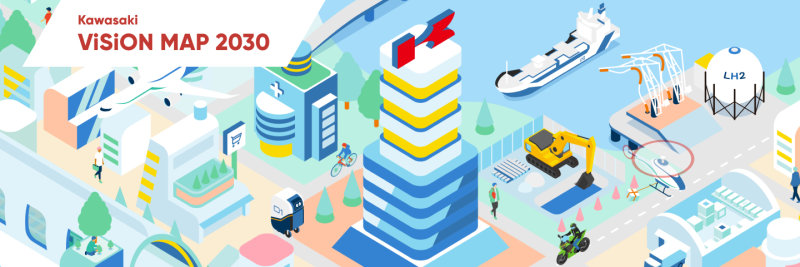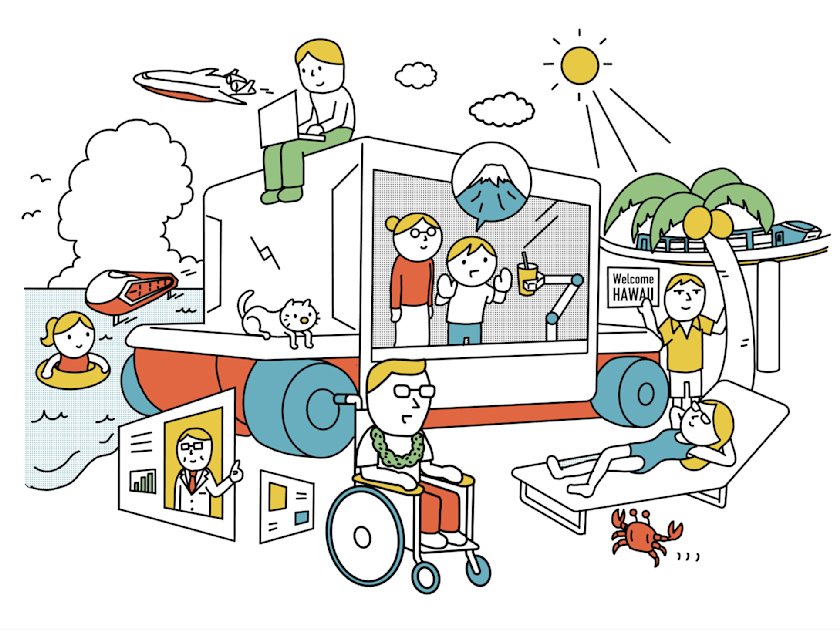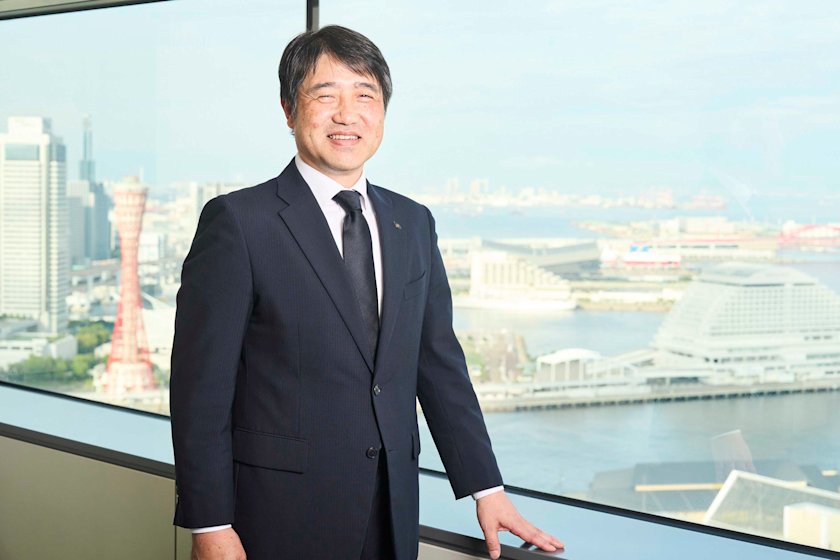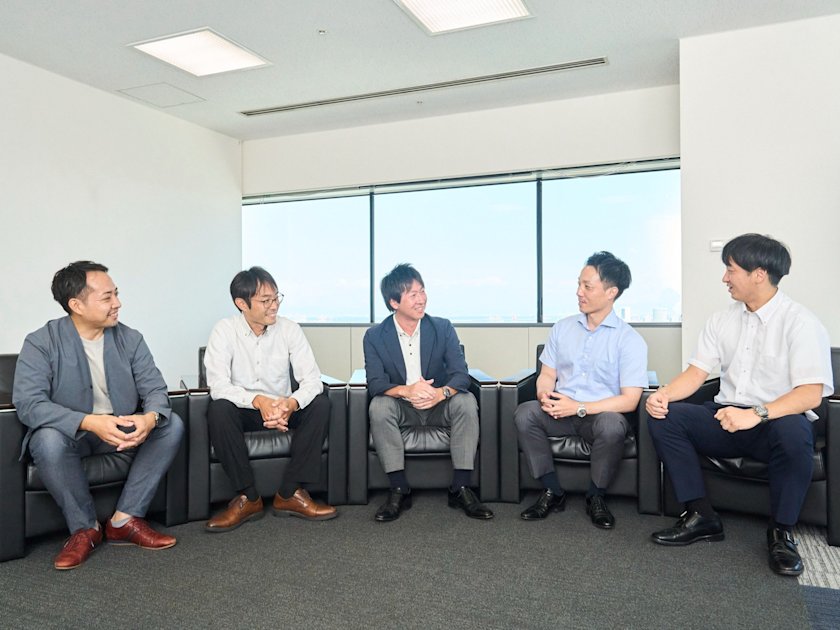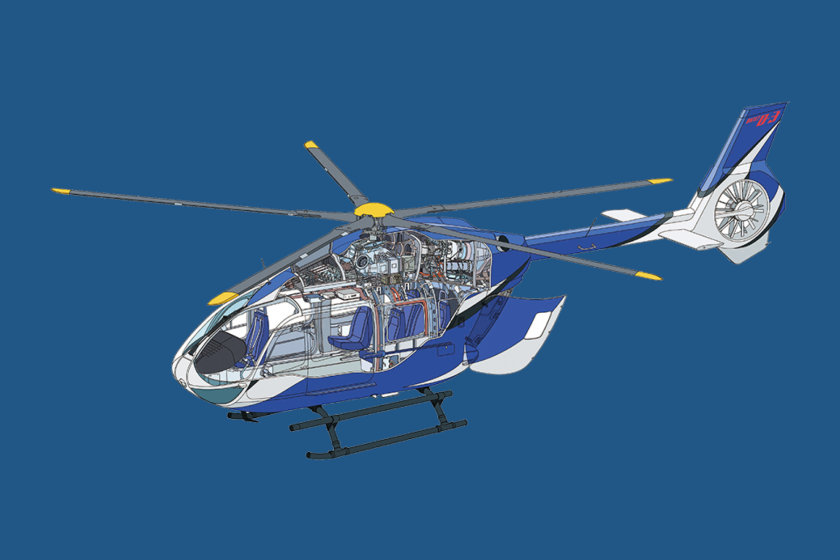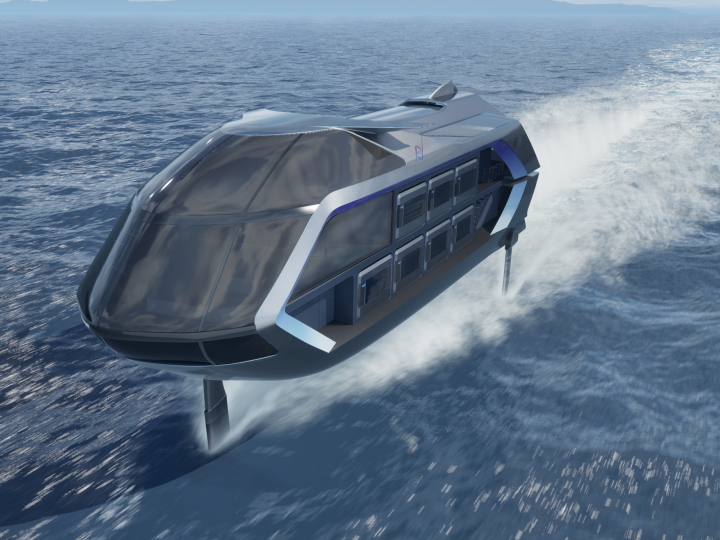Demonstrating Kawasaki’s dynamism with a fundamental reform in the personnel system
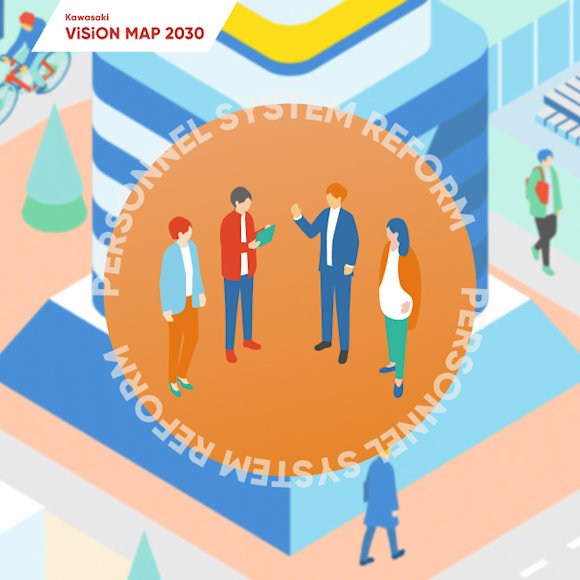
Kawasaki overhauled its personnel system in just three years to provide an encouraging environment for personal growth and endeavors, proving that rapid change is possible within large organizations. Here is the voice of an individual sharing personal experiences and spreading information about the system with the hope that Kawasaki inspires change throughout Japanese society. (This article is a part of Kawasaki ViSiON MAP 2030, which imagines the future of the Kawasaki Group.)
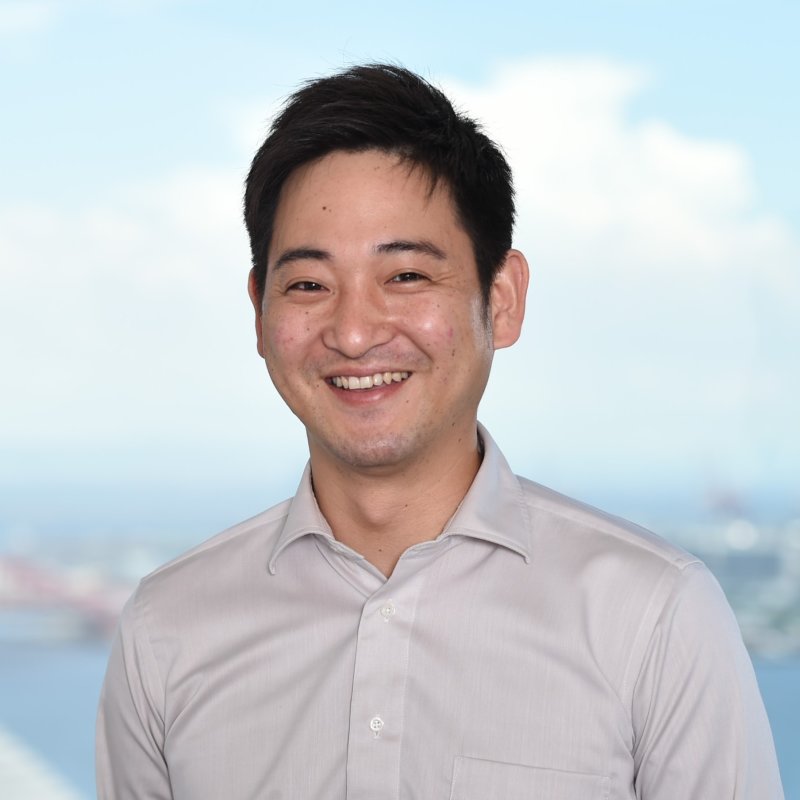
Head Office
Yokota joined Kawasaki in 2013 due to his love for motorcycles. After his work related to the Companies Act which used his knowledge of law, he transferred to the human resource section to work on the Personnel System Reform project.
Changes must be made because it is difficult
Many have the impression that major Japanese companies have difficulty responding flexibly to change. I feel this is a key issue that should not be left unaddressed. The personnel system is one element I feel has been long due for change. We had a traditional system in which salaries rose as workers became older regardless of their accomplishments; this also meant a culture in which some people were not evaluated fairly no matter how hard they might have worked because of age. We aimed to change this old-fashioned system by building a scheme for evaluation based on achievements and by introducing the possibility for voluntary career decisions.
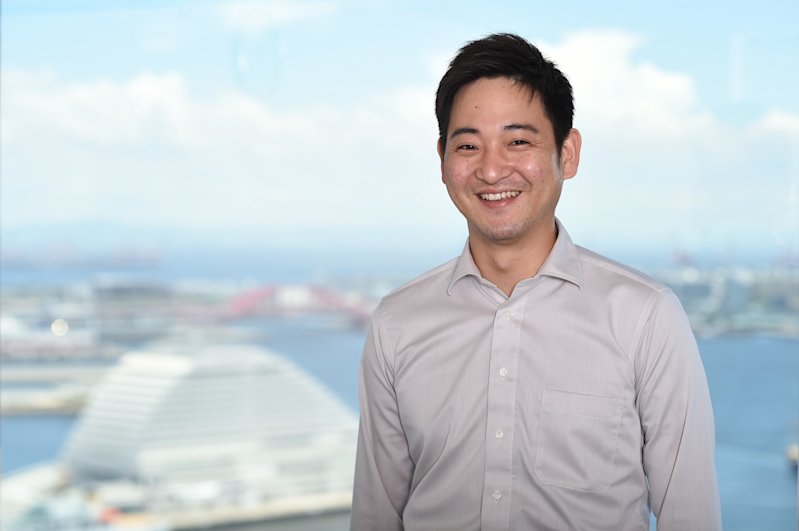
It takes longer to transform a culture than a system
The project to establish a new personnel system started in 2018. For the size of the company, we moved at a very fast speed, completing the project in 3 years. The core shift was that determinants related to age and the years of work at the company were replaced by achievement and skills. At the same time, an evaluation system was introduced to encourage employees to take on new challenges. In addition, rules were formulated to incorporate new work styles, including flextime without core hours and remote work, and workers were granted temporary leave to promote the relearning of skills for further career development. This is because there will be an increase in human resource mobility, we think we should let employees take on jobs of interest beyond their departments and companies. Kawasaki wants to be a company that respects and provides an environment for personal career plans. As a matter of course, making a system does not result in immediate changes in the culture or the minds of workers. We are trying to promote this new system in as many ways as possible, such as explanation from top management, the distribution of manuals, and orientation meetings about the system.
Sharing our experiences to change the entire industry
Experts say that it takes ten years to change the culture of an organization. This new personnel system may require the same length of time. I think the role of Human Resources is to spread this system in the shortest period possible so that young workers and experienced workers alike can take advantage of this experience. If Kawasaki, an enormous corporation, can gradually evolve, we can set an example for others. We have already been contacted by some companies and media. We are still halfway through the project, and we hope that you will continue to follow us as we take steps forward.

The information contained in the article is current as of December 2022.
"Kawasaki ViSiON MAP 2030" presents the future we want to realize by the year 2030, presented through the voices of Kawasaki staff working towards our vision. We hope you join us to learn about their efforts in social change, and to imagine the future we can achieve together.
